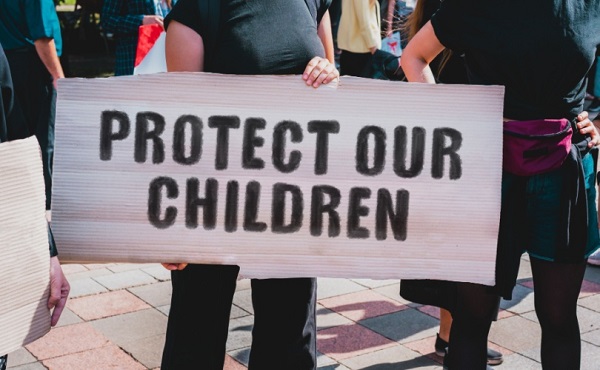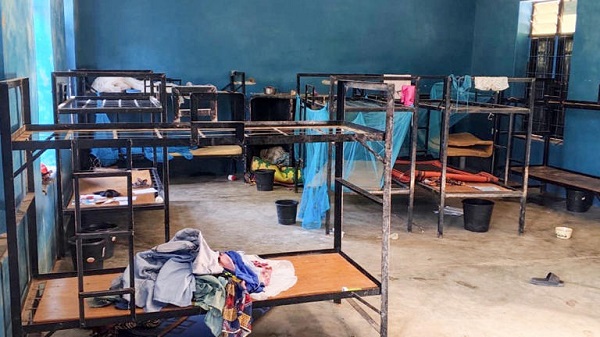Alberta
Poilievre easily wins Alberta by-election, will return to Parliament this fall

From LifeSiteNews
Conservative Party leader Pierre Poilievre won the Battle River-Crowfoot by-election in Alberta with 80.4% of the vote, securing his return to Parliament.
Conservative Party leader Pierre Poilievre has won the Alberta by-election, securing his seat in Parliament this fall.
According to August 18 results from Elections Canada, Poilievre has won the Alberta federal riding of Battle River-Crowfoot by-election with 80.4%, or 40,548 votes, which will allow him to stay on as party leader and return to Parliament.
“Getting to know the people in this region has been the privilege of my life,” Poilievre told a crowd at a victory party in Camrose, Alta. “In fact, I’ve had a hell of a lot of fun.”
During the April election, Poilievre lost his Ottawa seat to his Liberal rival, a seat he had held for decades. As a result, he did not return to Parliament but chose to remain as party leader. Conservative MP Andrew Scheer has been acting as party leader in his absence.
Shortly after, Conservative MP Damien Kurek officially resigned as an MP in Battle River-Crowfoot riding in a move to allow Poilievre to run in the by-election.
The Battle River—Crowfoot riding covers over 52,000 square kilometers of east-central Alberta and is considered one of the safest Conservative strongholds in Canada.
During the by-election, a group called the “Longest Ballot Committee” helped register protest candidates against Poilievre, just as they did in his former Ottawa-area Carleton riding in April’s election. The tactic was meant to confuse voters and reduce the number of people who voted for Poilievre.
Poilievre’s return follows months of speculation that he might lose the by-election and Conservatives would elect a new leader.
The Conservative leader is known for waiting to make strong statements until after the public reacts. In fact, in February, Poilievre muzzled his own MPs from speaking about Alberta’s ban on “transitioning” kids, only to come out days later in favor of the move after public support for Alberta’s policy rolled in.
Despite his statements in favor of the pro-family movement’s opposition to puberty blockers, he has refrained from pledging any action if he were elected prime minister, choosing instead to insist that such matters are best left under provincial jurisdiction.
Alberta
New pipeline from Alberta would benefit all Canadians—despite claims from B.C. premier

From the Fraser Institute
The pending Memorandum of Understanding between the Carney government and the Alberta governments will reportedly support a new oil pipeline from Alberta’s oilsands to British Columbia’s tidewater. But B.C. Premier David Eby continues his increasingly strident—and factually challenged—opposition to the whole idea.
Eby’s arguments against a new pipeline are simply illogical and technically incorrect.
First, he argues that any pipeline would pose unmitigated risks to B.C.’s coastal environment, but this is wrong for several reasons. The history of oil transport off of Canada’s coasts is one of incredible safety, whether of Canadian or foreign origin, long predating federal Bill C-48’s tanker ban. New pipelines and additional transport of oil from (and along) B.C. coastal waters is likely very low environmental risk. In the meantime, a regular stream of oil tankers and large fuel-capacity ships have been cruising up and down the B.C. coast between Alaska and U.S. west coast ports for decades with great safety records.
Next, Eby argues that B.C.’s First Nations people oppose any such pipeline and will torpedo energy projects in B.C. But in reality, based on the history of the recently completed Trans Mountain Expansion (TMX) pipeline, First Nations opposition is quite contingent. The TMX project had signed 43 mutual benefit/participation agreements with Indigenous groups along its route by 2018, 33 of which were in B.C. As of March 2023, the project had signed agreements with 81 out of 129 Indigenous community groups along the route worth $657 million, and the project had resulted in more than $4.8 billion in contracts with Indigenous businesses.
Back in 2019, another proposed energy project garnered serious interest among First Nations groups. The First Nations-proposed Eagle Spirit Energy Corridor, aimed to connect Alberta’s oilpatch to a port in Kitimat, B.C. (and ultimately overseas markets) had the buy-in of 35 First Nations groups along the proposed corridor, with equity-sharing agreements floated with 400 others. Energy Spirit, unfortunately, died in regulatory strangulation in the Trudeau government’s revised environmental assessment process, and with the passage of the B.C. tanker ban.
Premier Eby is perfectly free to opine and oppose the very thought of oil pipelines crossing B.C. But the Supreme Court of Canada has already ruled in a case about the TMX pipeline that B.C. does not have the authority to block infrastructure of national importance such as pipelines.
And it’s unreasonable and corrosive to public policy in Canada for leading government figures to adopt positions on important elements of public policy that are simply false, in blatant contradiction to recorded history and fact. Fact—if the energy industry is allowed to move oil reserves to markets other than the United States, this would be in the economic interest of all Canadians including those in B.C.
It must be repeated. Premier Eby’s objections to another Alberta pipeline are rooted in fallacy, not fact, and should be discounted by the federal government as it plans an agreement that would enable a project of national importance.
Alberta
Premier Danielle Smith says attacks on Alberta’s pro-family laws ‘show we’ve succeeded in a lot of ways’

From LifeSiteNews
Recent legislation to dial back ‘woke progressivism’ is intended to protect the rights of parents and children despite opposition from the left.
Alberta Premier Danielle Smith took a shot at “woke progressivism” and detractors of her recent pro-family laws, noting that because wokeness went “too far,” the “dial” has turned in favor of parental rights and “no one” wants their “kid to transition behind their back.”
“We know that things went a little bit too far with woke progressivism on so many fronts and we’re trying to get back to the center, trying to get them back to the middle,” Smith said in a recent video message posted on the ruling United Conservative Party’s (UCP) official X account.
Smith, who has been battling the leftist opposition New Democratic Party (NDP) attacks on her recent pro-family legislation, noted how “we’ve succeeded in a lot of ways.”
“I think we have moved the dial on protecting children and the right of girls and women to participate in sports without having to face born male athletes,” mentioning that the Olympics just announced gender-confused athletes are not allowed to compete in male or female categories.
“I think we’re moving the dial on parental rights to make sure that they know what’s going on with their kids. No one wants their kid to be transitioned behind their back and not know. I mean, it doesn’t matter what your background is, you want to know what’s going on with your child.”
Smith also highlighted how conservatives have “changed the entire energy conversation in the country, we now have we now have more than 70 percent of Canadians saying they believe we should build pipelines, and that we should be an energy superpower.’
As reported by LifeSiteNews, Smith recently said her government will use a rare constitutional tool, the notwithstanding clause, to ensure three bills passed this year – a ban on transgender surgery for minors, stopping men from competing in women’s sports, and protecting kids from extreme aspects of the LGBT agenda – remain law after legal attacks from extremist activists.
Bill 26 was passed in December 2024, amending the Health Act to “prohibit regulated health professionals from performing sex reassignment surgeries on minors.”
Last year, Smith’s government also passed Bill 27, a law banning schools from hiding a child’s pronoun changes at school that will help protect kids from the extreme aspects of the LGBT agenda.
Bill 27 will also empower the education minister to, in effect, stop the spread of extreme forms of pro-LGBT ideology or anything else allowed to be taught in schools via third parties.
Bill 29, which became law last December, bans gender-confused men from competing in women’s sports, the first legislation of its kind in Canada. The law applies to all school boards, universities, and provincial sports organizations.
Alberta’s notwithstanding clause is like all other provinces’ clauses and was a condition Alberta agreed to before it signed onto the nation’s 1982 constitution.
-

 Alberta2 days ago
Alberta2 days agoPremier Smith explains how private clinics will be introduced in Alberta
-

 Censorship Industrial Complex2 days ago
Censorship Industrial Complex2 days agoUK Government “Resist” Program Monitors Citizens’ Online Posts
-

 Business2 days ago
Business2 days agoUS Supreme Court may end ‘emergency’ tariffs, but that won’t stop the President
-

 Bruce Dowbiggin2 days ago
Bruce Dowbiggin2 days agoElbows Down For The Not-So-Magnificent Seven: Canada’s Wilting NHL Septet
-

 Alberta2 days ago
Alberta2 days agoAlberta introducing dual practice health care model to increase options and shorten wait times while promising protection for publicly funded services
-

 International2 days ago
International2 days ago“The Largest Funder of Al-Shabaab Is the Minnesota Taxpayer”
-

 International2 days ago
International2 days ago50 of the 315 students and 12 staff abducted from Catholic school in Nigeria last week have escaped
-

 espionage1 day ago
espionage1 day agoSoros family has been working with State Department for 50 years, WikiLeaks shows






